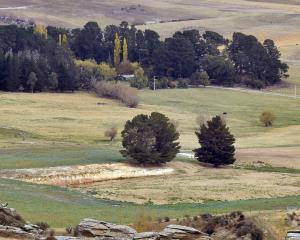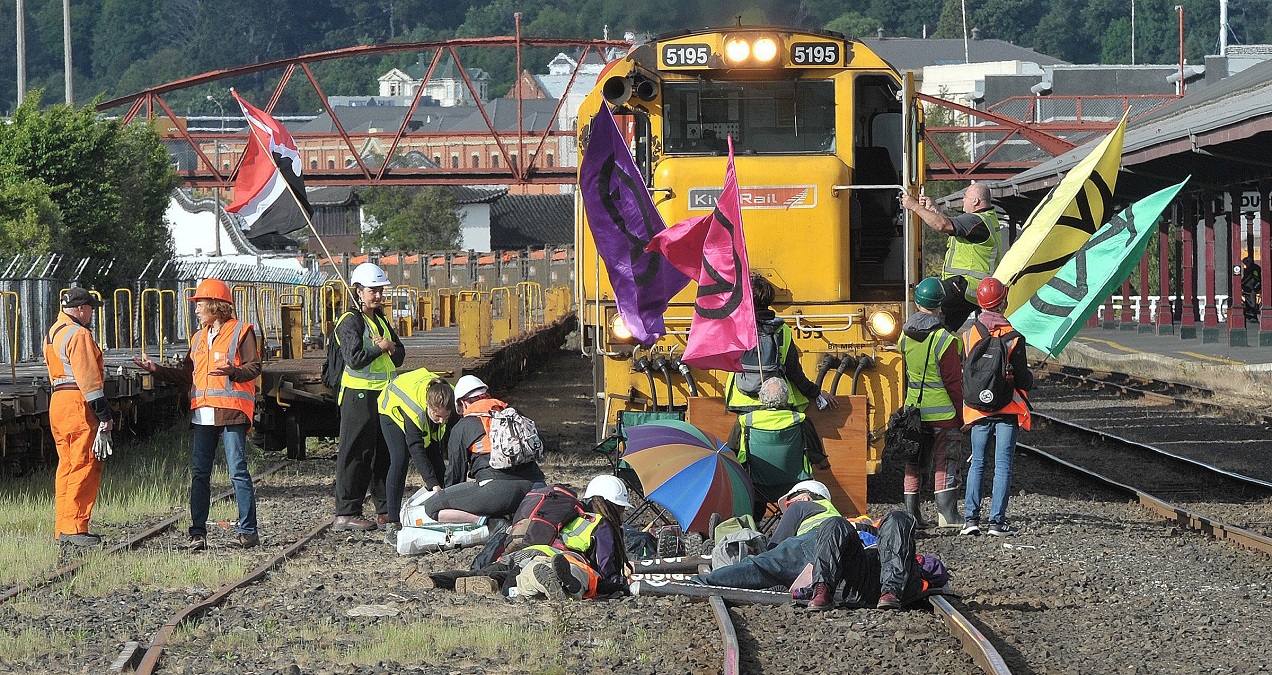
Away from the tourists’ cameras, on the further side of Dunedin’s ornate railway station, another long, heavy line of carriages clanks north. It has skirted the low-lying South Dunedin suburbs and will now travel north past a roll call of coastal villages and riverine towns.
There’s an anonymous uniformity about the wagons; in a world of brand ubiquity these grimed capsules give nothing away. Their veiled payload is an unreconstructed legacy from an earlier time, difficult to polish with a slogan for the 21st century.
But questions are now being asked about those wagons and their right to roll on unchallenged, day after day through the oblivious city, through the unsuspecting countryside.
This past week those questions were addressed again in the Dunedin District Court, where six defendants faced a reckoning for their actions several years ago - on the further side of Dunedin Railway Station.
On that warm December morning in 2021, a group of climate protesters quite literally put their bodies on the line to first stop a coal train as it passed through the rail yards then hold it there for several hours. For that frozen time, the stalled train stretched from just north of St Andrews St back to the railway station - an unanticipated extra attraction for the curious at the Otago Farmers Market.
Two of the protesters’ number, grandmothers Fay Brorens and Anne Smith, lay on the tracks in front of the train, each with an arm in a metal pipe secured to the track.
Others of the group climbed into a wagon, atop the Bathurst Resources coal from the Takitimu mine, near Nightcaps, or moved behind the last wagon, so the train could not reverse away.
There was nothing else for it, they said, all other avenues to address the climate risk the coal represented had been tried and failed. This is the creed of Extinction Rebellion, from which the protesters were drawn, a "direct action" group terrified by the snail’s pace of global action to rein in planetary-heating gases.
As they saw it, here was a state-owned enterprise, KiwiRail, hauling coal to Fonterra’s Clandeboye furnaces, despite the government having declared a climate emergency. The time for burning coal was long past, they said, as the lethal costs of climate change mounted and the Paris Agreement limit of 1.5°C of warming drew nearer.
The quotidian outcome of it all, in Dunedin’s courtroom one on Monday, was that charges of trespass were found to be proven against all six defendants, while two charges of obstruction were also upheld - one proven, one admitted. Just two of the six - who are weighted towards older, greying members of the citizenry - stood in the court to hear the judgement, others streamed in from other parts of the country.
All were remanded for sentence in December, when it is anticipated there will be arguments for discharge without conviction.
The issue of reparations also remains an open question. KiwiRail and Dunedin Railways may yet pursue a claim on conscience.
Another defendant from the same protest has already appeared in Christchurch, while the last of the eight arrested on the day, Michael Fay, died last month aged 83. He was 79 at the time of the protest.
Lawyers representing the six defendants in Dunedin put up two main arguments - that the Bill of Rights protects the right to protest, and the "defence of necessity".
Clearly, those arguments failed. They are hard arguments to win. But there’s reason to believe that this is another round in a longer conversation, rather than the end of the matter.
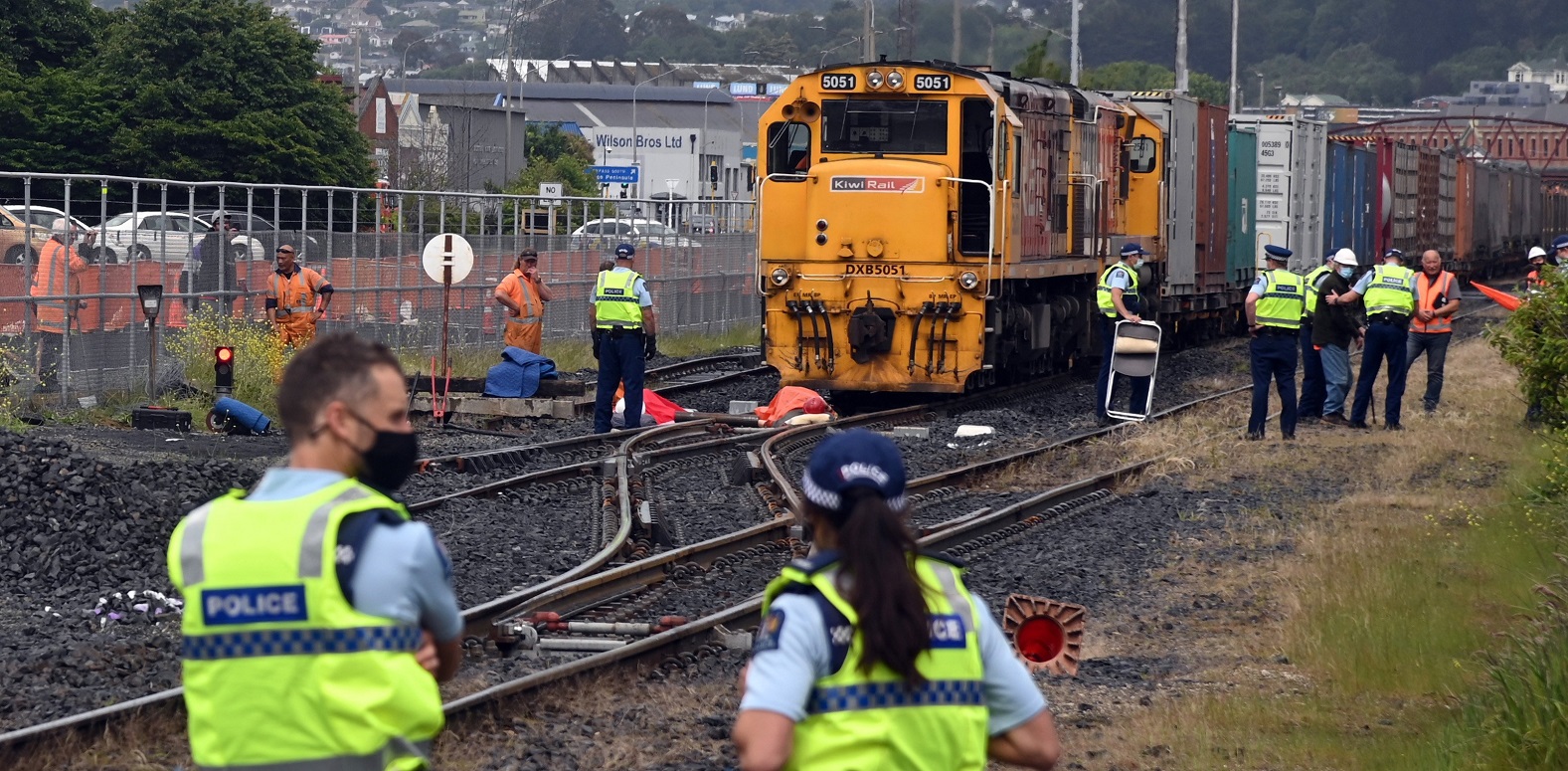
There was no doubt the defendants believed climate change represented an "impending catastrophic disaster".
"Their belief is well founded and held in good faith," he wrote.
"It is indisputable that climate change threatens human wellbeing and planetary health."
And courts are prepared to hear arguments.
"There are indications that, globally, courts are becoming more tolerant of climate change litigation, engaging in novel and often creative reasoning to hold governments and corporations accountable for emissions contributing to the climate crisis."
The judge also cited an article co-authored by University of Otago law professor Ceri Warnock, which suggests the climate change crisis demands a wholesale transformation of law.
However, in the final analysis, Judge Robinson ruled that in considering the facts of the case he was bound by the laws as written and precedent as previously set, and if you are on railway tracks and are asked to get off by someone with the authority to make the request, and you don’t get off, that’s trespass.
Defence counsel Ben Nevell, representing four of the defendants, set out to convince Judge Robinson to see things differently, during the trial back in July and early August.
In the context of the new and unprecedented threat to human civilisation that climate change poses, the defence of necessity was a safety valve, he argued.
In appropriate circumstances it could allow civil disobedience - of a proportionate nature - where governments were failing to do what was needed.
The defence of necessity is a long-standing common law convention that says it might be reasonable to break the law on occasions when there is imminent peril of death or serious injury, either to the defendant or someone else. It’s a lesser of two evils sort of thinking.
However, there are hurdles to cross, high hurdles - not least that courts are wary the defence could easily become "a mask for anarchy".
For Judge Robinson, the hurdles for the defence included identifying precisely who risked an early death as a result of Fonterra burning the tonnes of Nightcaps coal.
During the trial, Bruce Mahalski, one of the defendants, gave evidence citing the research of Daniel Brieslier, published in Nature Communications, that for every 4434 tonnes of CO₂ added to the atmosphere after 2020, one person will die by 2100 from heat-related causes.
On that basis, the Extinction Rebellion protesters believed that if they could stop just four trains, they could actually save a life.
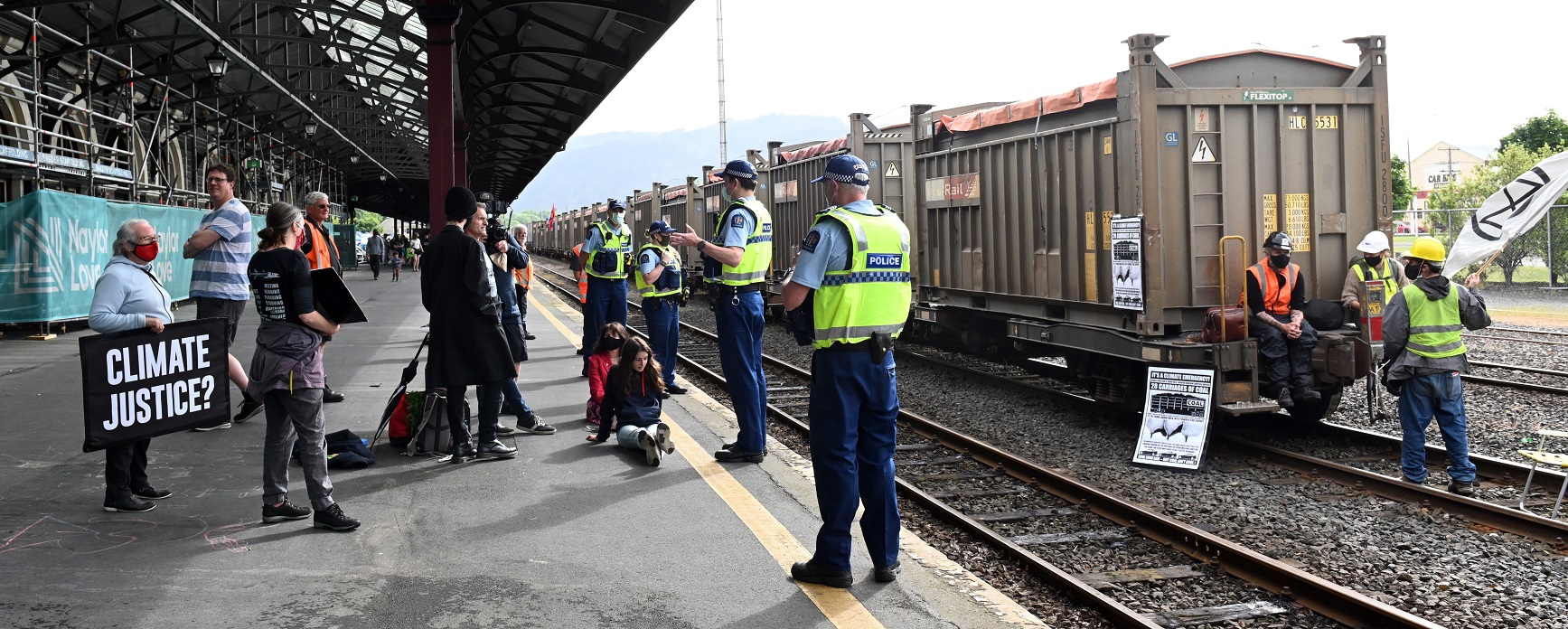
Alexandra-based climate scientist Gregory Bodeker - who has, among other involvements, contributed to several IPCC reports - gave expert evidence for the defence, saying New Zealand’s policies to limit greenhouse gas emissions fall well short of our obligations under the Paris Agreement, having been rated "highly insufficient" to avoid breaching the agreement’s 1.5°C limit. Rather, if every country did as we are, heating would reach a calamitous 4°C.
Dr Bodeker backed Briesler’s conclusions concerning the extra deaths CO₂ would cause globally - 83 million excess deaths between 2020 and 2100.
However, businesses continued to burn coal because it was "financially expedient to do so", Bodeker said. Those looking on witnessed a growing sense of helplessness and, with few avenues to exert any meaningful change, some were prone to engage in "acts of desperation".
Indeed, submissions were made to the court that the coal railed through the city between 2021 and 2024 would have produced emissions, when burnt by Fonterra, sufficient to kill 143 people.
"In my submission it is reasonable to take action to avoid that peril," Nevell told the court.
The usual pathways available in a liberal democracy to address the issue, voting, writing to MPs, petitions and so forth, had failed.
Indeed, liberal democracies were proving ill equipped to take action in the present to address long-term harm, he said.
If further proof were needed of the futility of conventional pathways to preventing those 143 deaths, it was provided by the case Mike Smith, the climate change spokesman for the Iwi Chairs Forum, was taking against the country’s biggest emitters. In the case, which has attracted international attention, Smith argues the emissions from the companies - including Fonterra - have harmed communities in the North, from where he hails, impacting coastal land and waters. He first filed a claim in the High Court at Auckland in 2019 and is still waiting for a determination.
In that time, the Takitimu coal railed to Clandeboye will have sealed the fates of many more.
That despite the Supreme Court saying it is now indisputable that climate change threatens human wellbeing and planetary health - in its ruling allowing Smith’s case to proceed over objections from Fonterra and others.
"As the Intergovernmental Panel on Climate Change (IPCC) observes, the window of opportunity to ensure a liveable and sustainable future for all is rapidly closing. The choices made, and actions implemented, in this decade will have impacts both now and for thousands of years," the Supreme Court found.
It went on to note the resulting increased mortality from climate change and that "limiting human-caused global warming requires net zero CO₂ emissions combined with strong reductions in other GHG emissions".
While effectively acknowledging all this in his judgement, Judge Robinson said the defence had not been able to say precisely who might die as a result of Fonterra’s carbon emissions. And it needed to do that - as the law currently stands - in order for a defence of necessity to prevail.
"The required degree of immediacy or imminence is not present," he wrote.
Whether climate science should be regarded as sufficient cause to stop a coal train was for a higher court to decide, he said.
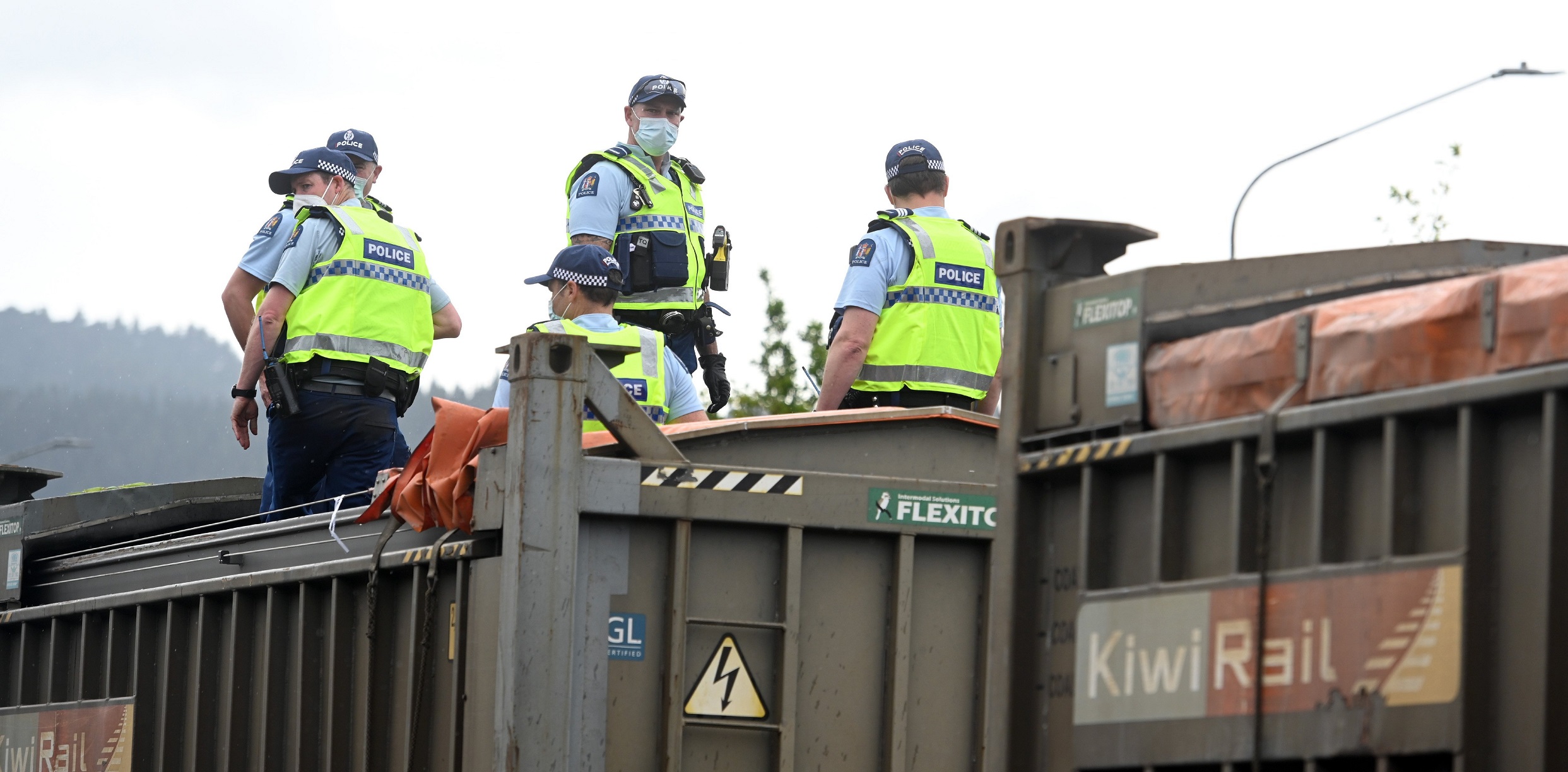
On his point that "courts are becoming more tolerant of climate change litigation", he said this might actually mean there were other courses of legal action open to head off emissions, short of taking direct action.
The Supreme Court’s decision to allow Smith’s case to proceed supports the contention. It could yet cool Fonterra’s coal furnaces by a legal route.
And while arguments are being made in academic circles - such as in Prof Warnock’s paper - that the extraordinary circumstances of climate change could redefine how the "defence of necessity" is regarded, that was still in the future, Judge Robinson said, and would again ultimately be for a senior court to rule on.
Other jurisdictions may be further down that road already.
Prof Warnock’s paper, co-authored with Brian Preston, chief judge of New South Wales land and environment court, says a defence of necessity premised on the climate change emergency appears to be an emerging trend, globally.
"In the UK, some magistrates and juries are delivering not guilty verdicts for climate change activists accused of trespass and criminal damage, despite judges advising the jury, where there is one, to reject defences of climate necessity as not validly based in existing jurisprudence ... In other nations, legal defences based on climate necessity are gaining traction, and some appear to have met with success," they write.
However, any trend towards entertaining climate change arguments didn’t stretch to the other defence deployed in the Dunedin case.
Defence counsel Dr Thomas Harre - representing the other two defendants - argued the New Zealand Bill of Rights Act protected peaceful protest of the kind undertaken at the railway station.
Particularly so given KiwiRail was required by the State-Owned Enterprises Act to exhibit a "sense of social responsibility by having regard to the interests of the community in which it operates and endeavouring to accommodate or encourage these when able to do so".
Given all of that, and the limited duration of the protest "the circumstances did not require a charge to be laid", Dr Harre argued.
However, Judge Robinson ruled that safety considerations under the Railways Act meant the actions police took to arrest and charge those involved were reasonable.
It has certainly not been all one-way traffic in terms of courts looking leniently at climate-related matters.
While juries in the UK may have been counselling leniency, the government there has introduced new public nuisance laws to curtail protest. Five climate activists are in jail for planning a motorway protest - having received sentences of between four and five years. The sentences have been described as "not acceptable in a democracy" and may yet be challenged in the European Court of Human Rights.
Here in New Zealand, some of those involved in motorway protests in Wellington have already spent short stints in custody and face the more serious charge of endangering transport - which carries a maximum sentence of 14 years.
The outcome there, too, is for the future.
For today, or perhaps tomorrow, away from the tourists’ cameras, on the further side of Dunedin’s ornate railway station, another long heavy line of grimy wagons will clank north, having skirted the sea-level-rise-threatened suburbs of the city. It will then tick off the exposed towns of the North Otago and South Canterbury coastline, cross the flood-threatened rail bridges over dozens of waterways. And then its cargo, the coal, will be burned.



